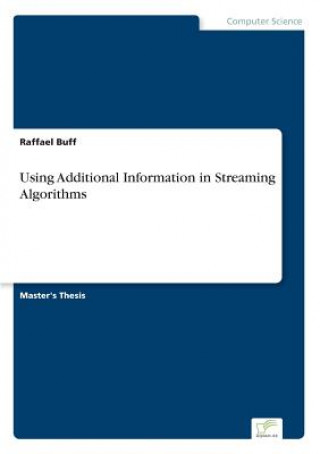
Kód: 15223817
Using Additional Information in Streaming Algorithms
Autor Raffael Buff
Streaming problems are algorithmic problems that are mainly characterized by their massive input streams. Because of these data streams, the algorithms for these problems are forced to be space-efficient, as the input stream lengt ... celý popis
- Jazyk:
 Angličtina
Angličtina - Väzba: Brožovaná
- Počet strán: 132
Nakladateľ: Diplom.de, 2016
- Viac informácií o knihe

Mohlo by sa vám tiež páčiť
-

A Brief History Of Time
11.26 € -25 % -

Excursions in Harmonic Analysis, Volume 3
70.87 € -
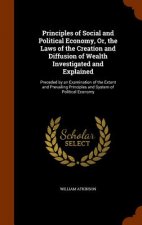
Principles of Social and Political Economy, Or, the Laws of the Creation and Diffusion of Wealth Investigated and Explained
53.15 € -

Access to the Built Environment a Review of Literature
43.11 € -
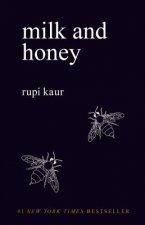
Milk and Honey
12.69 € -23 % -

Survey of Metaphysics
148.51 € -

Dirt Track Chassis & Suspension
34.20 € -6 % -

Basic Chord Progressions
9.11 € -

Italyan Mutfagi
55.40 € -

Paradiso. Sacro/profano
14.53 € -

Karinca Yili
11.26 € -
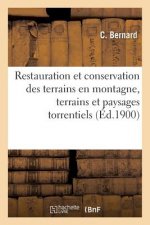
Restauration Et Conservation Des Terrains En Montagne: Les Terrains Et Les Paysages Torrentiels
18.02 € -
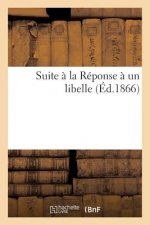
Suite A La Reponse A Un Libelle
16.89 € -

Shakespeares Charakterentwicklung Richards III
27.95 € -

La pura verdad
16.38 € -1 % -

Chin-chin, las desventuras de un pajarito
3.88 € -

Zero at the Bone: Eiskalt bis ins Mark
19.45 € -

Una visita a León
15.05 € -

Principios de arquitectura : el bosque, el desierto, la cueva
34.51 € -

Lang Lang Piano Academy: mastering the piano level 3 (Deutsche Ausgabe)
16.58 € -8 % -
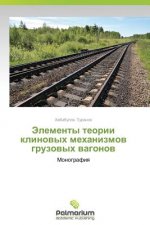
Elementy Teorii Klinovykh Mekhanizmov Gruzovykh Vagonov
76.30 €
Darčekový poukaz: Radosť zaručená
- Darujte poukaz v ľubovoľnej hodnote, a my sa postaráme o zvyšok.
- Poukaz sa vzťahuje na všetky produkty v našej ponuke.
- Elektronický poukaz si vytlačíte z e-mailu a môžete ho ihneď darovať.
- Platnosť poukazu je 12 mesiacov od dátumu vystavenia.
Viac informácií o knihe Using Additional Information in Streaming Algorithms
Nákupom získate 306 bodov
 Anotácia knihy
Anotácia knihy
Streaming problems are algorithmic problems that are mainly characterized by their massive input streams. Because of these data streams, the algorithms for these problems are forced to be space-efficient, as the input stream length generally exceeds the available storage. In this thesis, the two streaming problems most frequent item and number of distinct items are studied in detail relating to their algorithmic complexities, and it is compared whether the verification of solution hypotheses has lower algorithmic complexity than computing a solution from the data stream. For this analysis, we introduce some concepts to prove space complexity lower bounds for an approximative setting and for hypothesis verification. For the most frequent item problem which consists in identifying the item which has the highest occurrence within the data stream, we can prove a linear space complexity lower bound for the deterministic and probabilistic setting. This implies that, in practice, this streaming problem cannot be solved in a satisfactory way since every algorithm has to exceed any reasonable storage limit. For some settings, the upper and lower bounds are almost tight, which implies that we have designed an almost optimal algorithm. Even for small approximation ratios, we can prove a linear lower bound, but not for larger ones. Nevertheless, we are not able to design an algorithm that solves the most frequent item problem space-efficiently for large approximation ratios. Furthermore, if we want to verify whether a hypothesis of the highest frequency count is true or not, we get exactly the same space complexity lower bounds, which leads to the conclusion that we are likely not able to profit from a stated hypothesis. The number of distinct items problem counts all different elements of the input stream. If we want to solve this problem exactly (in a deterministic or probabilistic setting) or approximately with a deterministic algorithm, we require once again linear storage size which is tight to the upper bound. However, for the approximative and probabilistic setting, we can enhance an already known space-efficient algorithm such that it is usable for arbitrarily small approximation ratios and arbitrarily good success probabilities. The hypothesis verification leads once again to the same lower bounds. However, there are some streaming problems that are able to profit from additional information such as hypotheses, as e.g., the median problem.
 Parametre knihy
Parametre knihy
Zaradenie knihy Knihy po anglicky Computing & information technology Computer programming / software development Programming & scripting languages: general
123.72 €
- Celý názov: Using Additional Information in Streaming Algorithms
- Autor: Raffael Buff
- Jazyk:
 Angličtina
Angličtina - Väzba: Brožovaná
- Počet strán: 132
- EAN: 9783961165421
- ISBN: 3961165424
- ID: 15223817
- Nakladateľ: Diplom.de
- Hmotnosť: 181 g
- Rozmery: 210 × 148 × 8 mm
- Dátum vydania: 05. October 2016
Obľúbené z iného súdka
-
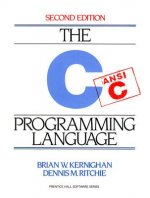
C Programming Language
67.80 € -
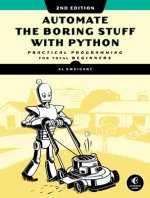
Automate The Boring Stuff With Python, 2nd Edition
35.74 € -13 % -
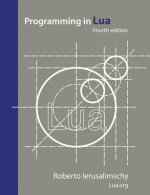
Programming in Lua, fourth edition
40.14 € -13 % -
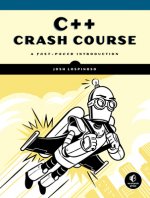
C++ Crash Course
47.93 € -19 % -
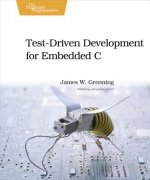
Test Driven Development for Embedded C
28.67 € -21 % -
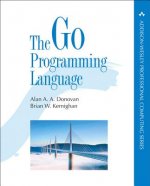
Go Programming Language, The
36.35 € -
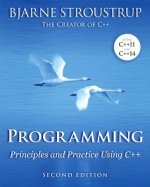
Programming
67.18 € -6 % -
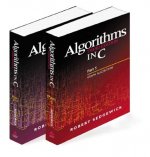
Algorithms in C, Parts 1-5
153.02 € -
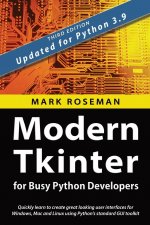
Modern Tkinter for Busy Python Developers
33.28 € -19 % -
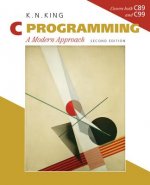
C Programming
94.53 € -
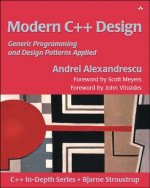
Modern C++ Design
64.62 € -5 % -

Modern C++ Programming with Test-Driven Development
33.79 € -16 % -
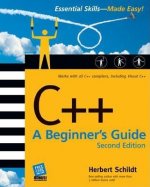
C++: A Beginner's Guide, Second Edition
39.12 € -11 % -
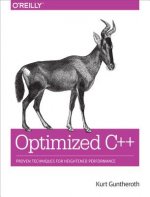
Optimized C++
75.07 € -

C All-in-One Desk Reference for Dummies
38.81 € -6 % -

Hands-On Software Architecture with Golang
66.06 € -

Beginner's Guide to Embedded C Programming
46.39 € -
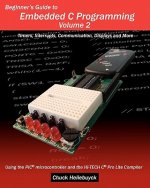
Beginner's Guide to Embedded C Programming - Volume 2
46.39 € -
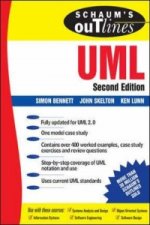
Schaum's Outline's UML
17.50 € -13 % -
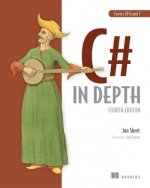
C# in Depth, 4E
52.54 € -
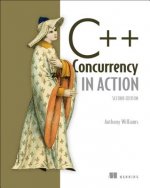
C++ Concurrency in Action,2E
83.78 € -

Official Scratch Coding Cards, The (scratch 3.0)
19.14 € -8 % -
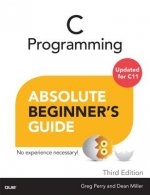
C Programming Absolute Beginner's Guide
24.06 € -11 % -

C++ Templates
79.27 € -2 % -
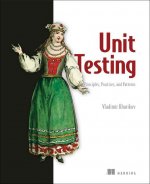
Unit Testing:Principles, Practices and Patterns
59.60 € -

Programming PIC Microcontrollers with XC8
53.36 € -19 % -
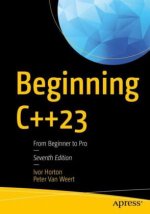
Beginning C++23
54.79 € -17 % -
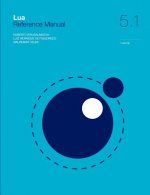
Lua 5.1 Reference Manual
17.20 € -19 % -

Effective C++
46.49 € -5 % -

Practical Object-Oriented Design
39.42 € -7 % -
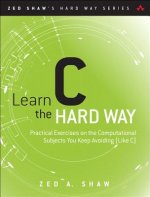
Learn C the Hard Way
37.48 € -
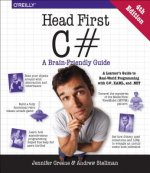
Head First C#, 4e
56.22 € -20 % -

C++17 - The Complete Guide
62.57 € -
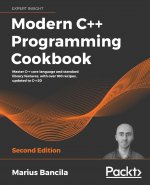
Modern C++ Programming Cookbook
54.58 € -

Fanuc CNC Custom Macros
84.08 € -1 % -
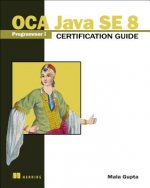
OCA Java SE 8 Programmer I Certification Guide
64.62 € -5 % -
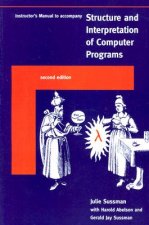
Instructor's Manual t/a Structure and Interpretation of Computer Programs
47.31 € -
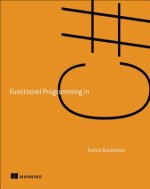
Functional Programming in C#
56.94 € -
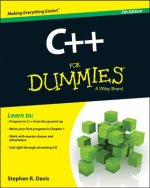
C++ For Dummies, 7e
28.77 € -20 % -

Clean C++20
44.24 € -4 % -

Bascom-AVR Programming
24.88 € -9 % -

JavaScript & JQuery - Interactive Front-End Web Development
39.02 € -26 % -
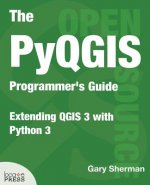
Pyqgis Programmer's Guide
57.76 € -
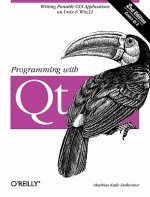
Programming with QT 2e
56.74 € -
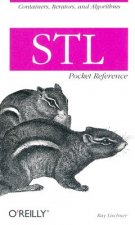
STL Pocket Reference
9.11 € -19 % -
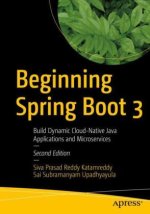
Beginning Spring Boot 3
52.74 € -13 % -
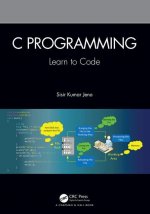
C Programming
179.85 € -
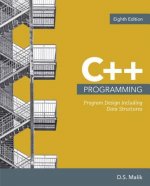
C++ Programming
295.60 € -
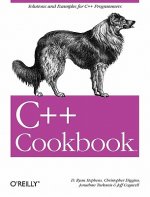
C++ Cookbook
48.23 € -5 %
Osobný odber Bratislava a 2642 dalších
Copyright ©2008-24 najlacnejsie-knihy.sk Všetky práva vyhradenéSúkromieCookies



 21 miliónov titulov
21 miliónov titulov Vrátenie do mesiaca
Vrátenie do mesiaca 02/210 210 99 (8-15.30h)
02/210 210 99 (8-15.30h)